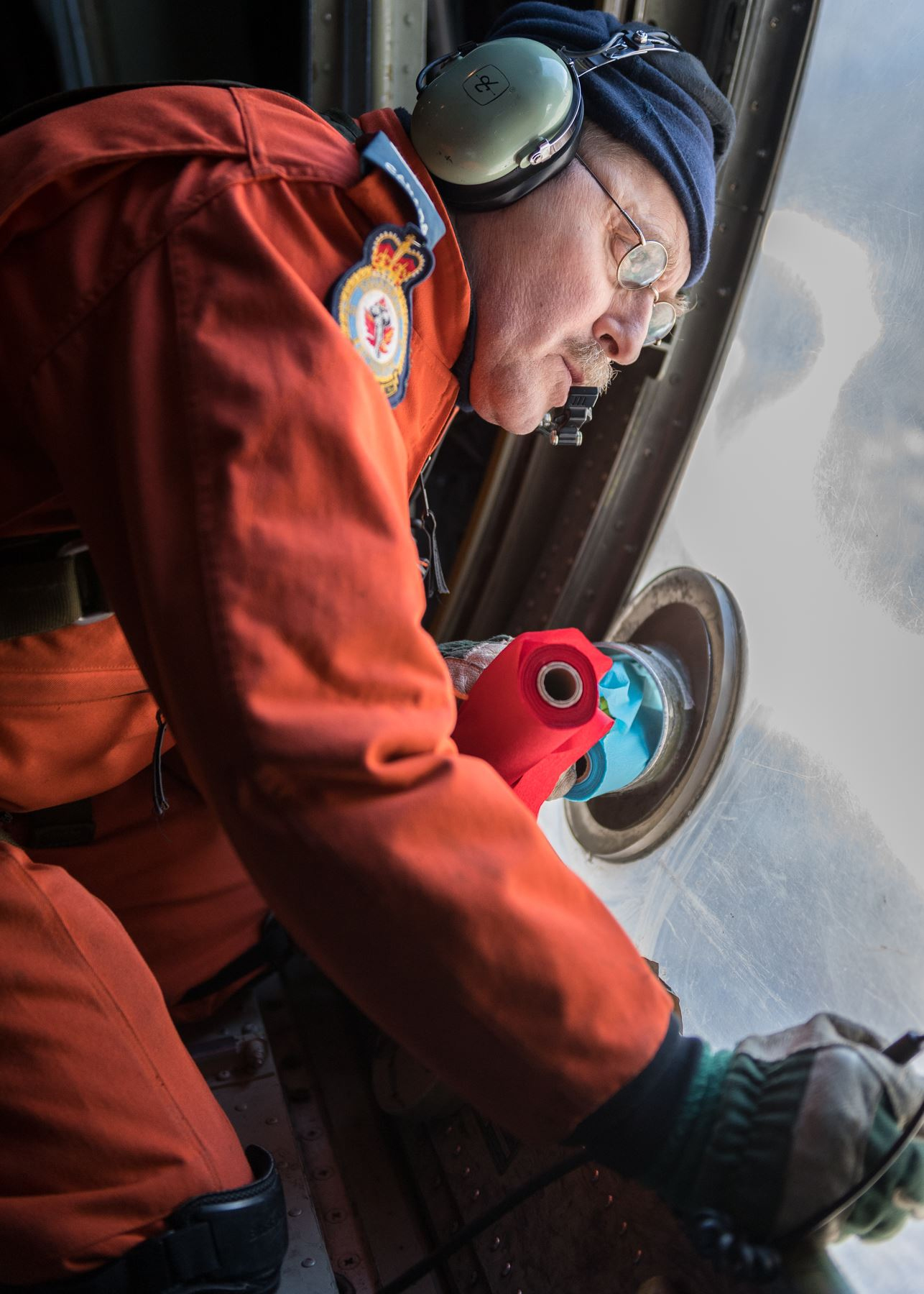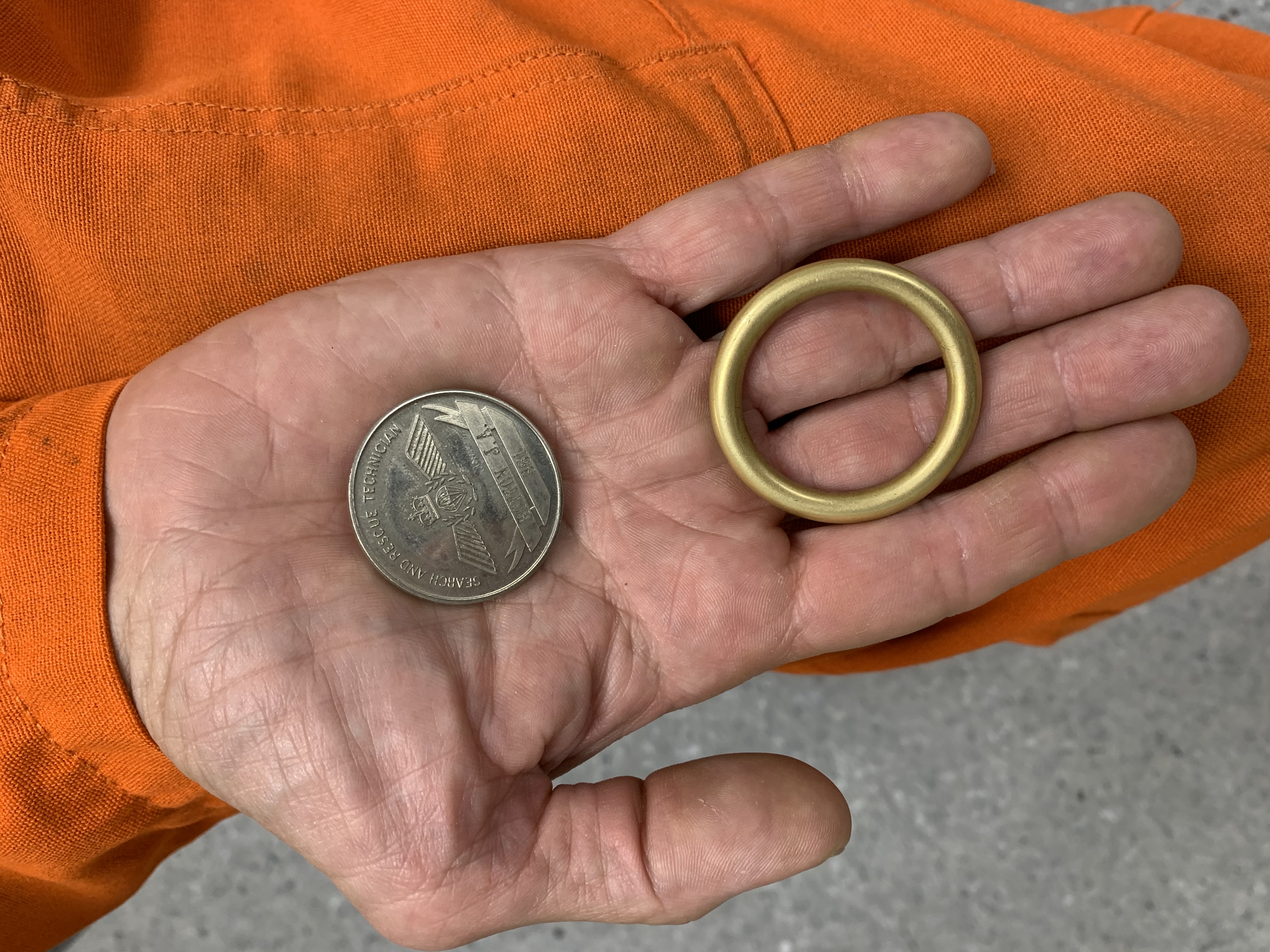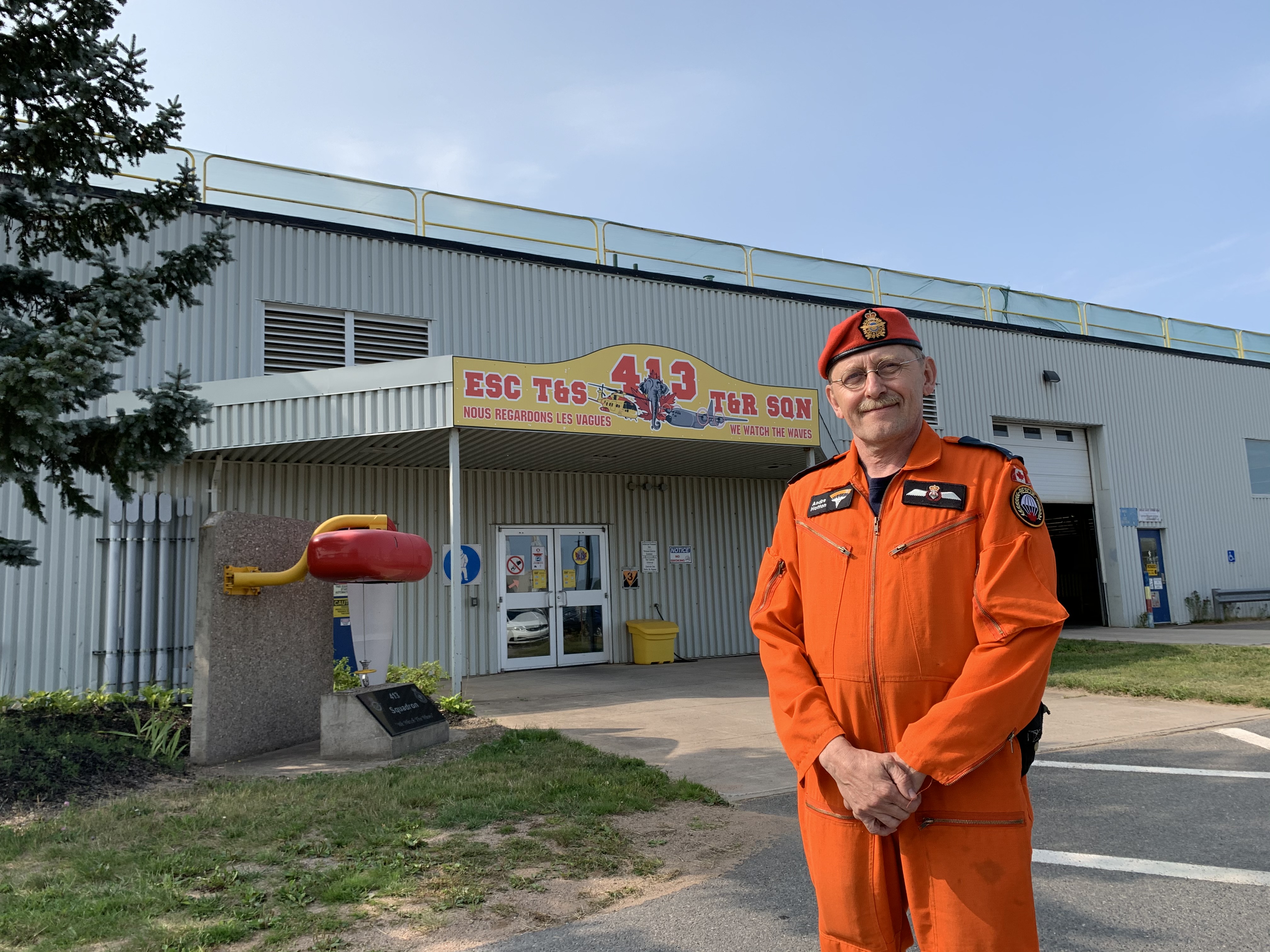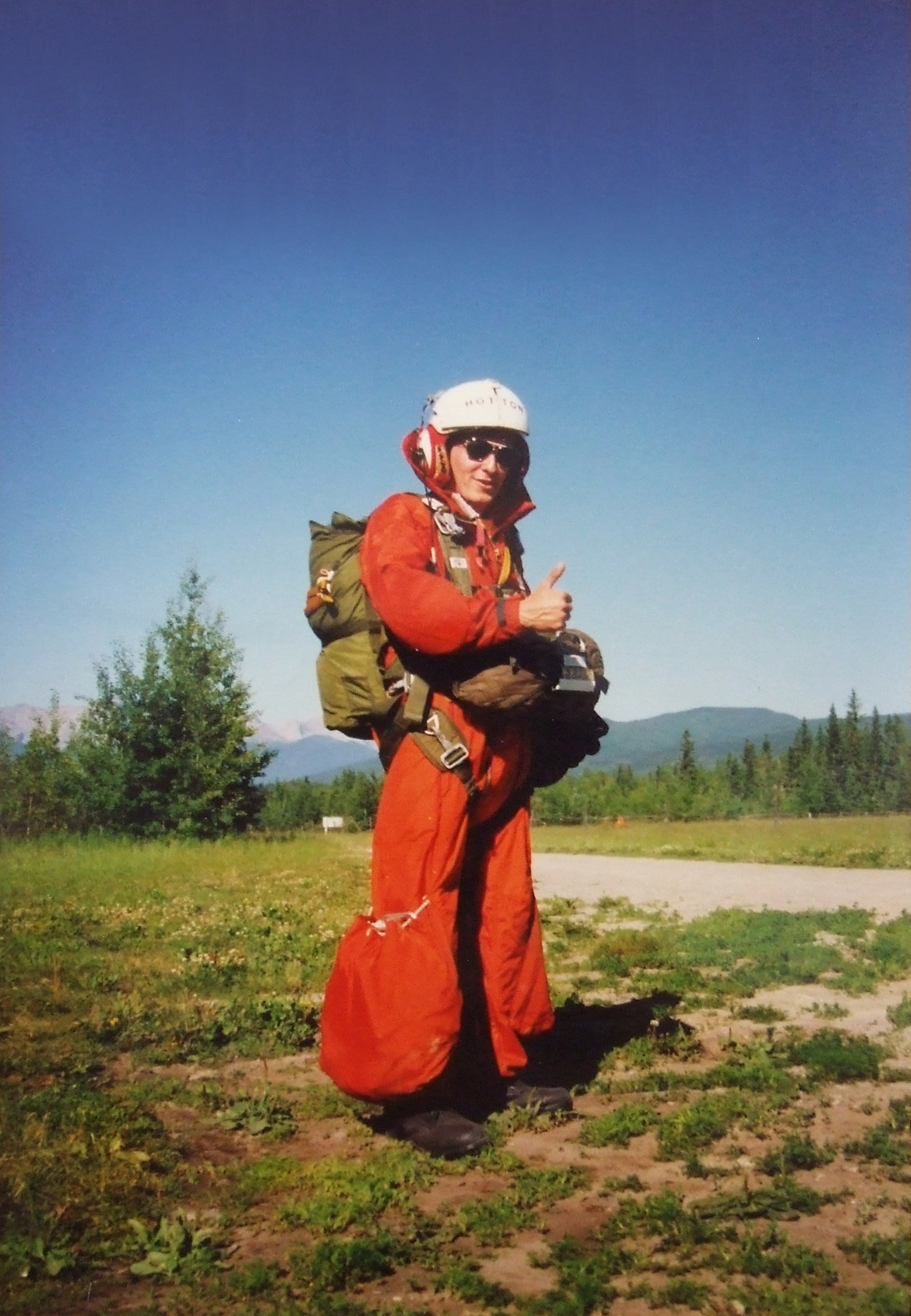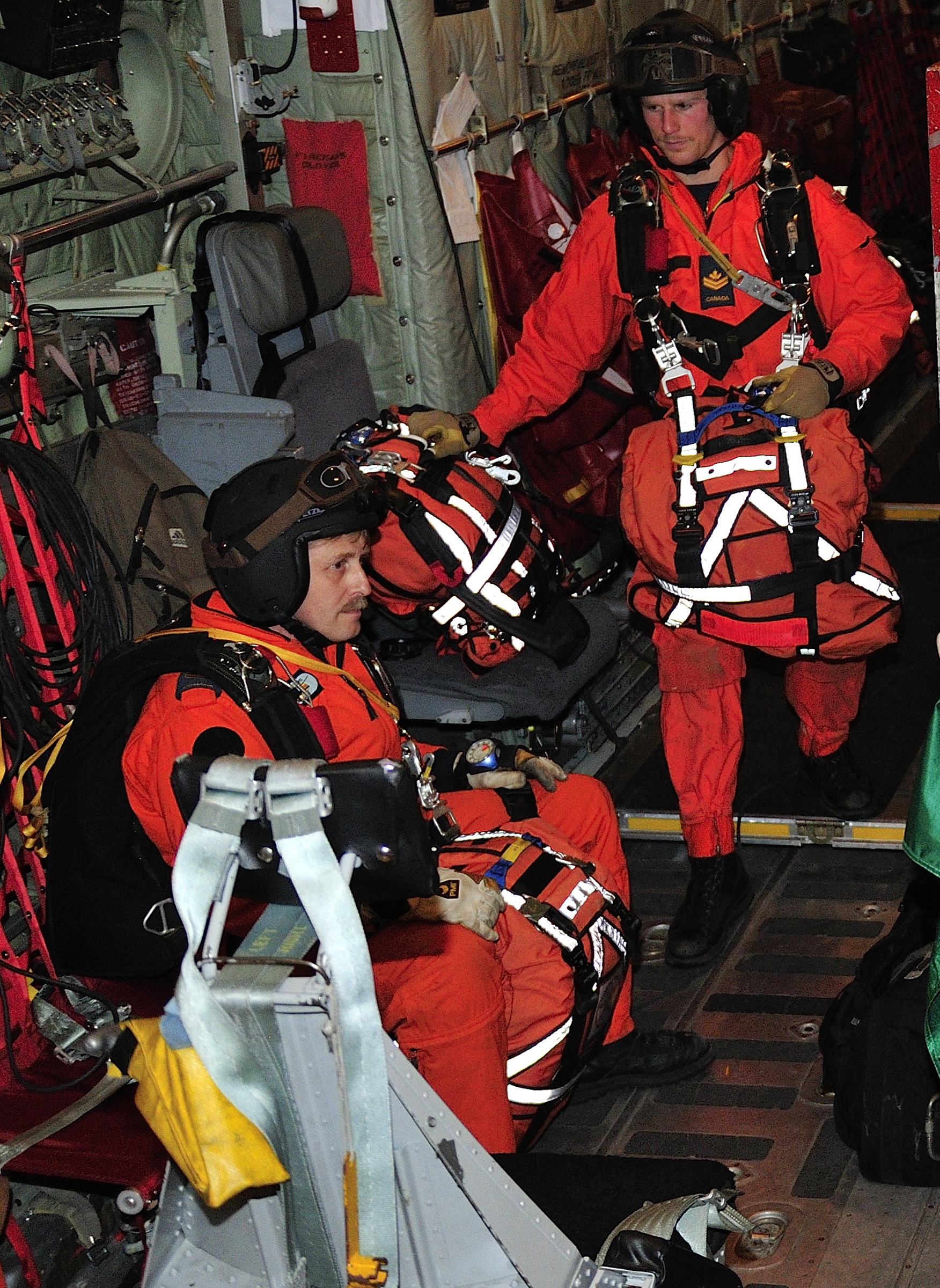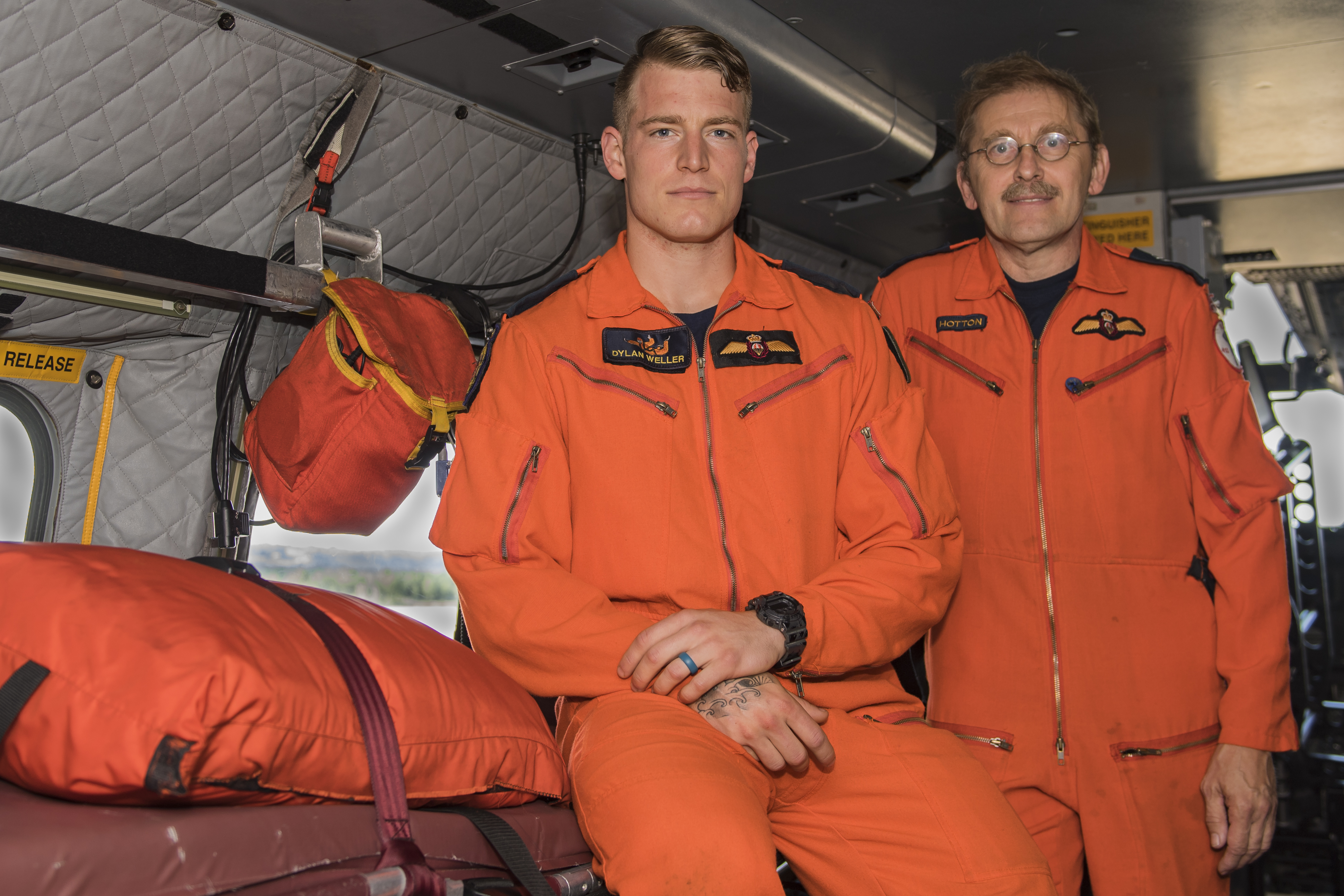When the standard is integrity: Most senior RCAF SAR Tech honoured to be part of that team
News Article / October 13, 2020
Click on the photo under “Image Gallery” to see more photos.
By Sara White
Thirty-year search and rescue technician Sergeant André Hotton believes in having a ‘Plan A.’
“Then Plan B, Plan C…always have a back-up plan. You can’t do this job alone; it’s always as a team, and you always want to smooth the edges with your team so that everyone has their say, it’s all evaluated and the best out of it all is taken. What’s left becomes Plan D.”
Doing all of that in the back of a CC-130 Hercules or CH-149 Cormorant, with an open ramp, wild winds and rain in the sky beyond, stormy seas or steep mountains below, often in darkness, with precious minutes ticking by as someone below needs immediate rescue? “It works,” Hotton says. “You really have to listen, and figure out what people mean. Working over intercom, say, even a pause in a sentence means something.”
Forty-two years - and counting - into his Canadian Armed Forces career, Hotton believes, nowadays, they call it “crew resource management.” To him, it’s listening. He’s been doing it all his life.
The youngest of 10, Hotton grew up in Gaspé, “between the sea and the forest, always outside walking through the woods or beachcombing.” His father was a Second World War veteran; his mother was a teacher. There were no sports, but Hotton was always busy, taking things apart to rebuild. Every time one of his siblings learned something new, they showed him. He laughs: his first “hoist” was at age five, as an older brother tested the strength of a Meccano set crane by hooking into Hotton’s suspenders and lifting him off the ground. “Maybe that’s why I learned to listen.”
Regular schoolwork didn’t interest him as much as electronics or electromechanics. Local work in the woods, fishing, or working in a factory wasn’t what he wanted. When a military recruiter came through in 1978, he was in Grade 11. He signed up. “Actually, my parents had to sign for me – I was 17. My parents were proud and happy: when children find their niche, a job and pay… they were happy I’d found that.”
Hotton headed to Saint-Jean for basic training – course 7831, destined to become a radio technician. His first posting was to Penhold, Alberta, “closed now, nothing left of the base. I was working in a Diefenbaker bunker. I had a mentor, another radio tech. He was from England, he grew up in wartime and then joined the Canadian military. He guided me to do my job properly, to enjoy it, to take my time and evaluate things. His attitudes and his relaxed approach – I listened to him.”
That mentor told Hotton, “you want to be in Germany,” and Hotton ended up in Baden Baden for five years. He worked with high power radios, microwaves, CBs, and radios. “A good part of it was still tubes.” He bought a Westphalia camper, took up hang gliding, and learned to swim. He went to Switzerland to meet up with a girl he’d met for one afternoon back home in Quebec. They started to ‘court’. Today, they’re married.
“My trade, I enjoyed it. I asked for an extension.” He didn’t get it, and a return to Canada loomed. The trade was changing too, equipment with parts he could test and fix were being replaced with equipment under warranty. Maybe, Hotton thought, it was time for a new trade. “Another sergeant spotted me: ‘why don’t you become a SAR-Tech?’ I’d never seen one; there were none anywhere I’d been, so I said OK.”
Wrapping up in Germany, Hotton took diving lessons, a parachuting course, practiced rock climbing, and took all kinds of medical training. Posted back to Canada, he applied three times for the search and rescue technician course before he was accepted in 1990 for course #27.
“I didn’t fit the mold at all, all big guys, rushing in first, trying anything. I was 29, but the average age was under 25. My philosophy was, ‘you don’t have to be first, you just don’t want to be last.’”
What he loved was the equipment: “they’d give it to me to use, and I’d use it the best I could; or, I’d learn to do something the best way I could. It was, ‘how quickly could you apply what you learned?’”
Hotton was posted to Edmonton, to a team of about 20 guys and two types of aircraft – the Hercules and the Twin Otter, “it could turn on a dime.” The SAR region ranged halfway over the Rockies, into the North and almost to Winnipeg.
On his first jump there, Hotton caught the puffy pants of the then-issue jumpsuit in his ‘chute riser. “I broke my leg, still in the air. I chose a tree to land in to keep my leg off the ground. It was an exercise with a simulated casualty: all the guys saved the casualty, then they came for me.” The ribbing over that incident lingered, but Hotton recuperated over the next six months, wearing a cast, tucked into the SAR-Techs’ shop sewing, fixing all the equipment and doing all the maintenance.
Hotton was posted to Greenwood in 1994. The Maritime move was rooted in a family-first necessity: their young son needed access to a major health centre after a heart transplant at just five months old. The operation had taken place in California, then the 27th heart transplant ever done, and Halifax’s IWK children’s hospital was ‘top of the line’. Hotton’s wife found work at the Kentville hospital and, following multiple misfired postings, short IRs and resets in Greenwood until Hotton joined the Reserves; they’ve been here ever since.
“It’s always been family first, with that work commitment balance. Always balance. We had four kids, they all grew up in the Valley…they’re all settled now. I’m a sergeant; which is fine with me. I’m trying to learn guitar, I rebuild clarinets, I volunteer at a railway museum, and I do woodworking and bookbinding. I have two Westphalia campers – I’m restoring that one I had in Germany.”
When asked about any dramatic search and rescue work that stands out, Hotton demurs, downplaying his skill, expertise and training. “That’s a SAR-Tech. You keep upgrading, so, basically, you always only have a few years’ experience as equipment keeps changing.”
He’s impressed with the professional calibre of newer SAR-Techs. His 12 course jumps with an uncontrollable round ‘chute is nothing to landing 50 to the target with a steerable canopy. Today’s medical training, equipment and protocols all make everything more efficient.
Hotton ignores the fact that he has two Medals of Bravery, and continues to meet the demanding SAR-Tech standards. Now aged 60, he received a one-year extension to September 2021, making him the most senior search and rescue technician in the Royal Canadian Air Force.
What drives him is the victim of an accident, or the patient needing help, or the lost. “Guys don’t go out in a boat fishing or in the woods to have an accident or a medical emergency. The integrity to do this job is to do the right thing for them. The best way to evaluate what you’re going to do on a rescue is put yourself in the position of that person. I think of that person, and represent him in what will be done.”
Hotton still does what his original mentor advised. He watches and listens to his colleagues at work as there is talk of new processes, or what the schedule should look like, or where the radio charging station should sit. “I still want them to try – although it’s been done many times before. It’s experience.” He opens his hand to reveal what’s in his pocket: a brass ring from an old diving bag, maybe. He’s carried it for 20-odd years, and turns it in his fingers while the talk around him continues. “I don’t count years, and I have no regrets. I love being a SAR-Tech. It’s an honour to be part of that team.”
Sara White is Deputy Public Affairs Officer and managing editor of The Aurora Newspaper.
